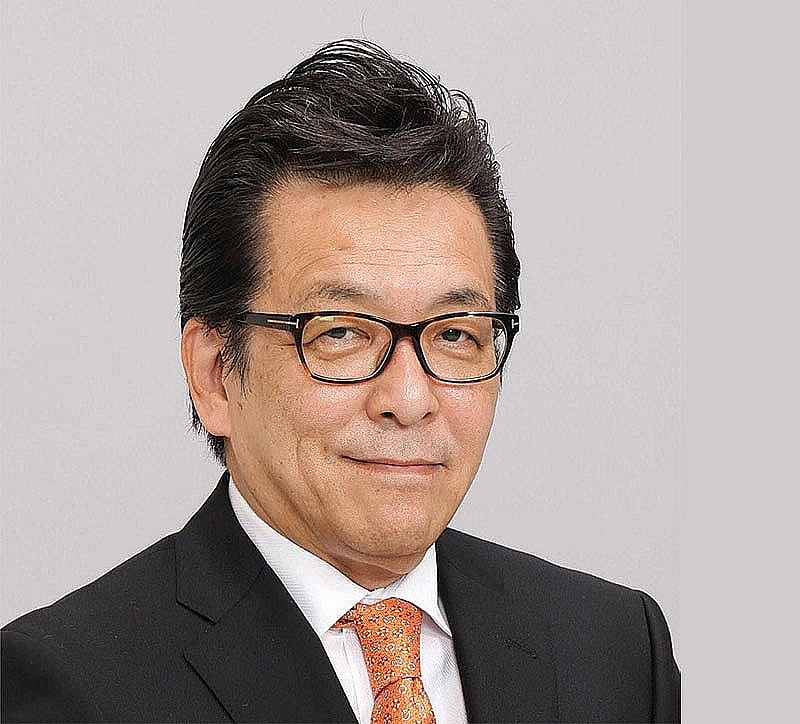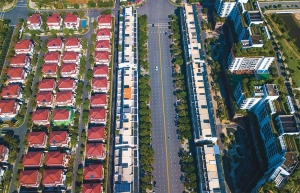M&A figures can be rejuvenated through stability
Can you share the latest data on Japanese dealmaking activity in Vietnam during the first nine months of 2024?
 |
| Masataka “Sam” Yoshida, head of the Cross-border Division of RECOF Corporation |
In the first nine months of 2024, there were 14 publicly disclosed transactions between Vietnam and Japan, up from 12 in the same period in 2023, according to RECOF’s merger and acquisition (M&A) database. These transactions occurred across a wide range of sectors, including food, retail, distribution, logistics, electronics, healthcare, and education. Major trading houses such as Mitsubishi, Mitsui, Marubeni, and Sojitz were active in areas like food and distribution.
One standout transaction was the $135 million acquisition of H.C. Starck Holding, a major tungsten producer, by Mitsubishi Materials from Masan Group. This deal is classified as a transaction between Vietnam and Japan. Masan’s strategy to focus on fast-moving consumer goods aligns with Mitsubishi Materials’ goal of strengthening its position in the global minerals market.
M&A activity in the first nine months of 2024 saw a 6.5 per cent drop in capital contributions and a 26.2 per cent dip in share purchases. What’s your take on this decline?
The current decline in M&A activity, driven by global and domestic factors, is largely temporary. On a global scale, the International Monetary Fund forecasts global growth to slow to 3.2 per cent in 2024, down from 3.3 per cent in 2023 and a peak of 6.3 per cent in 2021. This reflects a slowdown in major economies, leading to increased uncertainty among investors.
In the Asia-Pacific region, M&A deal volumes and values fell by 17 per cent and 32 per cent, respectively, in the first half of 2024 compared to the same period in 2023, according to PwC. Rising inflation and tighter monetary policies, particularly in the US, Europe, and Japan, have raised the cost of capital, making cross-border acquisitions less attractive globally.
However, as inflation stabilises and central banks ease monetary policies, investor confidence is expected to rebound, creating a more favourable environment for M&A activity.
Domestically, while regulatory inefficiencies and administrative delays have deterred some investors, the Vietnamese government is working to improve its regulatory framework and reduce bureaucratic hurdles. These reforms, along with incentives for foreign investors, are expected to enhance the investment climate.
Vietnam remains fundamentally attractive due to its competitive labour force, strategic location, and strong growth potential in sectors such as manufacturing, technology, and retail. Japanese companies, in particular, continue to show interest in shifting production from China to Vietnam, positioning the country as a key production hub in Asia.
The Asian Development Bank projects Vietnam’s GDP growth to reach 6.2 per cent in 2025, highlighting its resilience and potential to draw in renewed foreign investment.
What factors could drive a recovery in Vietnam’s M&A market in the final months of 2024?
A breakthrough in Vietnam’s M&A market will depend on improvements in the global economic landscape. Stabilising inflation and more predictable monetary policies from major economies are key to restoring investor confidence. The projection of over 6 per cent GDP growth for 2024, if achieved, would underscore Vietnam’s resilience and its attractiveness for investment.
Another significant driver is the convergence of AI, data centres, and the semiconductor sector. Vietnam’s AI market is expected to reach $1 billion in 2025, creating strong demand for data infrastructure. Ranked among the top 10 most attractive locations for data centre investment in Asia, Vietnam benefits from affordable land and power costs.
Global tech giants like Amazon Web Services, Google, Meta, and Huawei have also expressed interest in expanding their data centre and AI operations in the country, positioning Vietnam as a regional digital hub. These developments present lucrative opportunities for foreign and domestic investors looking to capitalise on Vietnam’s growing role in the global supply chain.
Overall, a combination of global economic recovery, strong growth in technology sectors, and government support will likely drive a resurgence in Vietnam’s M&A activity through 2024 and beyond.
 | Clear characteristics shaping expectations in M&A Despite some mega deals, Vietnam is waiting for a rebound in merger and acquisition activities. Warrick Cleine, chairman and CEO of KPMG in Vietnam and Cambodia, talked with VIR’s Thanh Van his insights into dealmaking activities in the Vietnamese market. |
 | Vietnam tries to buck trends in M&A Despite a slump in global merger and acquisition transactions, Vietnam witnessed a significant uptick in large transactions in the first half of 2024, with robust deal flow in key sectors and the rise of strategic acquisitions. |
 | Reform adds to strong M&A outlook The flow of capital from foreign investors into Vietnam’s real estate market has remained positive, with multiple transactions currently under negotiation. Seck Yee Chung, partner of Baker McKenzie Vietnam, discussed with VIR’s Bich Ngoc on the market’s outlook. |
What the stars mean:
★ Poor ★ ★ Promising ★★★ Good ★★★★ Very good ★★★★★ Exceptional
Related Contents
Latest News
More News
- New rules ease foreign access to Vietnam equities (February 05, 2026 | 17:29)
- Vietnam’s IFC creates bigger stage for M&As (February 01, 2026 | 08:16)
- Game startup Panthera raises $1.5 million in seed funding (January 29, 2026 | 15:13)
- Cool Japan Fund transfers shares of CLK Cold Storage (January 28, 2026 | 17:16)
- Nissha acquires majority stake in Vietnam medical device maker (January 26, 2026 | 15:40)
- BJC to spend $723 million acquiring MM Mega Market Vietnam (January 22, 2026 | 20:29)
- NamiTech raises $4 million in funding (January 20, 2026 | 16:33)
- Livzon subsidiary seeks control of Imexpharm (January 17, 2026 | 15:54)
- Consumer deals drive Vietnam’s M&A rebound in December (January 16, 2026 | 16:08)
- Southeast Asia tech funding rebounds on late-stage deals (January 08, 2026 | 10:35)

 Tag:
Tag:



















 Mobile Version
Mobile Version